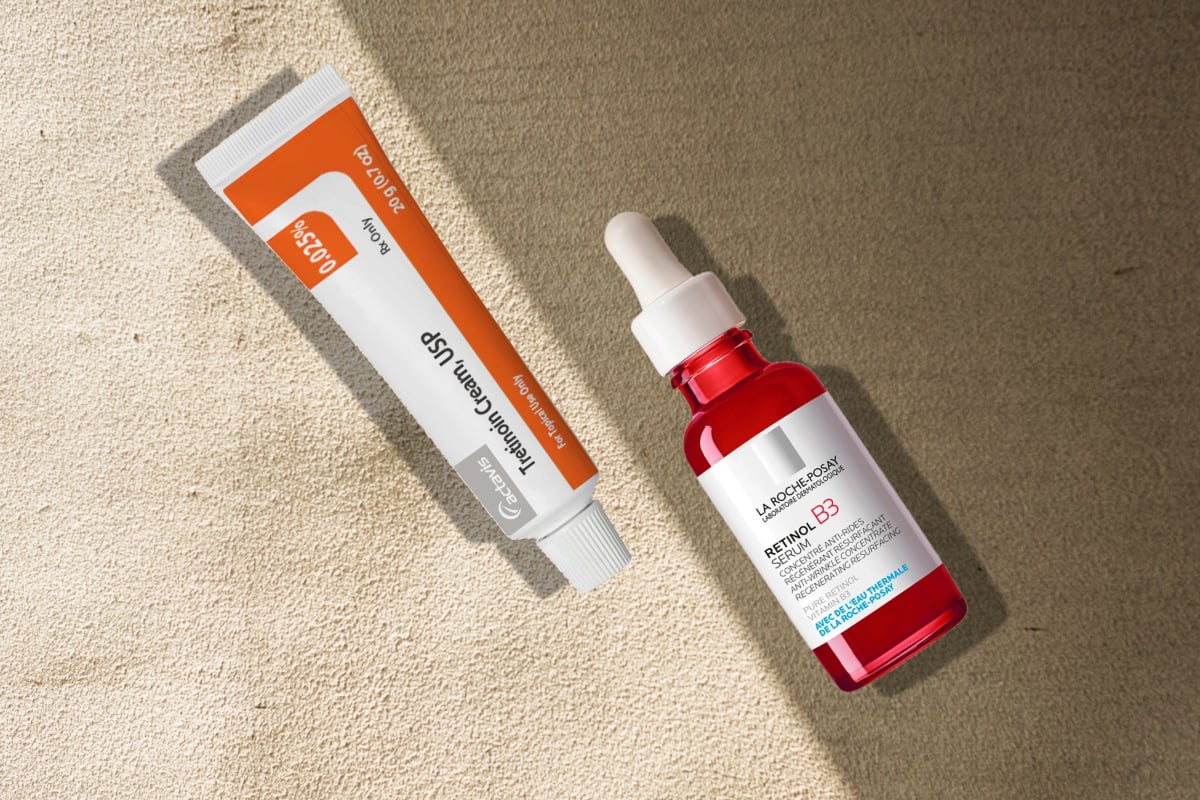Peptides are one of the greatest multi-taskers the skincare world has ever had. Thanks to their versatility and endless list of benefits, a plethora of peptides with different biological activities have been developed to address literally every skin concern out there. Wrinkles, dullness, breakouts, inflammations, you name it, peptides can fight them all. But what if I told you there’s also a kind of peptide that can lighten your skin and fade dark spots? Meet whitening peptides.
How do whitening peptides work?
Whitening peptides are like any other peptides, a short chain of amino acids found in all living organisms (your body makes peptides too) linked by peptide bonds. The main role of peptides? It’s to act as the building block for proteins needed to maintain skin integrity, such as collagen.
However, what makes whitening peptides different from other types of peptides is their ability to trigger specific functions to reduce pigment content in skin cells, aka melanin.[1] While there are multiple types of peptides used as skincare actives like signaling and carrier peptides, whitening peptides fall in the category of enzyme-inhibiting peptides.
Enzyme inhibitors are substances that bind to an enzyme to reduce its activity without damaging its protein structure. In the case of whitening peptides, it has been shown they inhibit the activity of tyrosinase and other key enzymes that control melanin synthesis.[2][3][4][5]
In fact, quite a few studies show whitening peptides can interrupt the primary melanin-producing processes, down-regulating the pigment levels in skin cells by up to 43%.[1] As proved by many, interrupting these key processes can result in powerful skin lightening effects, and whitening peptides are a promising option to accomplish that.[4][5]
For instance, in one independent clinical study, 2% whitening peptides inhibited tyrosinase by 36% and epidermal melanin by 92%. The pigmented areas were significantly reduced by 83% after two months of twice-daily application, which confirmed the ability of peptides to reduce hyperpigmentation through topical use.[4]
Besides, it turns out whitening peptides have unique properties that improve both constitutive pigmentation (the natural, genetically determined color of the skin) and facultative pigmentation (caused by UV exposure). In other words, skin-brightening peptides are not only effective at fading skin discolorations such as hyperpigmentation but also at evening out the natural skin tone. This makes them such fantastic skin brighteners.
What type of peptides lightens the skin?
Now, what types of peptides can actually lighten the skin? I delved into that too and found whitening peptides include dipeptides, cyclic peptides, and oligopeptides.[3] Especially, oligopeptides have proven to be effective tyrosinase inhibitors and skin brightening agents. In other studies, oligopeptides-3, as well as oligopeptides-68, decapeptide-12, and octapeptide delivered substantial inhibitory effects on tyrosinase compared to hydroquinone. However, other research results reveal that tripeptides such as glutathione show the most striking inhibitory potency being more effective than the known oligopeptides and comparable with kojic acid-tripeptides.[3] These whitening peptides could directly block the active site of tyrosinase and thereby leading to serious depigmenting effects.
References
Women’s Concepts uses reliable sources, including dermatologists’ insights, clinical trials, and scientific journals, to find accurate information and support all the facts shared in our articles. All statements and claims have clear and legit references. Read our editorial policy to learn more about our sources of information, our process of researching and fact-checking the content, and how our team strives to keep all articles updated, completed, and trustworthy.
- Abu Ubeid A, Zhao L, Wang Y, Hantash BM. Short-sequence oligopeptides with inhibitory activity against mushroom and human tyrosinase. J Invest Dermatol. 2009 Sep;129(9):2242-9. doi: 10.1038/jid.2009.124. Epub 2009 May 14. PMID: 19440221.
- Hsiao NW, Tseng TS, Lee YC, Chen WC, Lin HH, Chen YR, Wang YT, Hsu HJ, Tsai KC. Serendipitous discovery of short peptides from natural products as tyrosinase inhibitors. J Chem Inf Model. 2014 Nov 24;54(11):3099-111. doi: 10.1021/ci500370x. Epub 2014 Oct 30. PMID: 25317506.
- Thanigaimalai Pillaiyar, Manoj Manickam & Vigneshwaran Namasivayam (2017) Skin whitening agents: medicinal chemistry perspective of tyrosinase inhibitors, Journal of Enzyme Inhibition and Medicinal Chemistry, 32:1, 403-425, DOI: 10.1080/14756366.2016.1256882
- https://www.cosmeticsandtoiletries.com/cosmetic-ingredients/actives/article/21835242/lightening-skin-through-a-melanogenesis-interrupting-peptide
- Lee EJ, Kim J, Jeong MK, Lee YM, Chung YJ, Kim EM. Whitening effect of novel peptide mixture by regulating melanosome biogenesis, transfer and degradation. Korean J Physiol Pharmacol. 2021;25(1):15-26. doi:10.4196/kjpp.2021.25.1.15




![Does resveratrol in red wine benefit your skin? While sipping on a glass of red wine can be a delightful experience, relying on it for skincare benefits is not the best idea. Sure, red wine contains a smidge of resveratrol, but let's put things into perspective. The concentration of resveratrol in red wine is relatively low. Red wines, specifically Pinot noir from France, typically contain 0.361-1.972 mg of resveratrol per liter.[8] To hit that reference dose of 500mg of resveratrol, you'd need to drink a lot of wine. We're talking about downing anywhere from 100 to 1000 glasses per day. It's a scene straight out of a wine lover's wildest dreams, but definitely not the healthiest approach. Resveratrol Benefits for Skin](https://womensconcepts.com/wp-content/uploads/2022/03/Resveratrol-Benefits-for-Skin.jpg)
